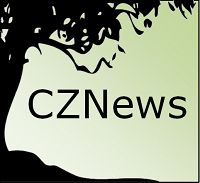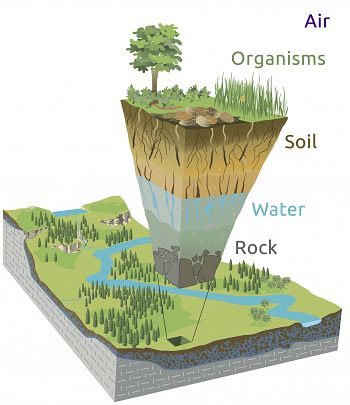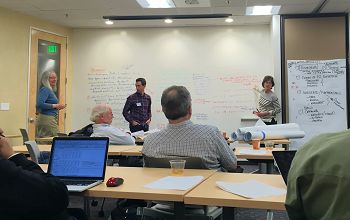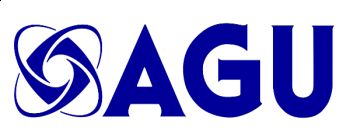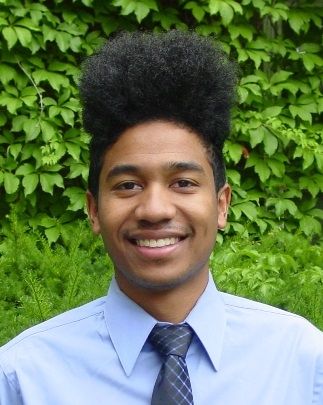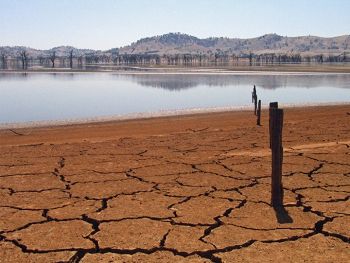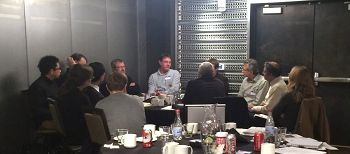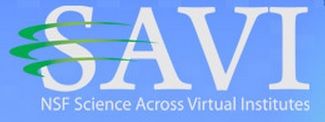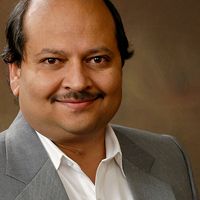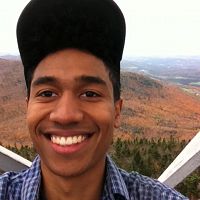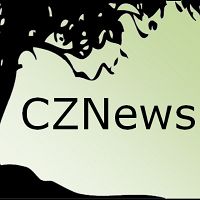CZNews: Spring 2016
Print Verison: CZNews - Spring 2016 (1 MB PDF)
NSF CZO Network Strategic Planning Meeting
The CZO National Network held a strategic planning meeting, February 3-4, 2016 in Boulder, CO, to build a network mission and vision. The CZO PIs, National Office, and strategic planner Cindy Zook & Associates developed a 3-year leadership strategy. The process included: identifying shared network values, reflecting on the program’s history, and determining key factors in the future of CZ science. The results are an ongoing mission to discover how Earth’s living skin is structured, evolves, and provides critical functions that sustain life, and a vision of “digging deep to project the future.” To foster this vision and CZ research, the CZOs agreed to uphold the values of interdisciplinary collaboration, “deep” science, and predictive knowledge. Participants strategized an implementation plan that includes both short and long-term goals, mechanisms for collaboration and communication, and a schedule with leaders responsible for the progression of the plan. We will provide more information and details regarding the CZO strategic plan in upcoming newsletters.
2015 AGU Fellows & Awards
The CZO National Office and network congratulates the 2015 AGU fellows and award recipients whose interdisciplinary work contributes to understanding of the Critical Zone. CZO community members recognized as fellows include: Todd Dawson (UC Berkeley) for his understanding of plant, soil, and atmosphere interactions in the hydrologic cycle; Praveen Kumar (U. Illinois) for pioneering the field of “hydrocomplexity” in understanding behaviors in multiscale water, climate, and vegetation interactions; and Peter Troch (U. Arizona) for contributions to understanding hillslope to landscape-scale hydrological processes. Fellows recognized for their work in CZ science were: Larry Band (UNC-Chapel Hill) for pioneering digital topographic analysis at multiple scales; Jennifer Harden (USGS) for fundamental contributions to quantitative understanding of soils in global change and carbon cycling; and Scott Tyler (U. Nevada, Reno) for fundamental advancements of desert, river, lake, and glacial processes through novel measurement, theory, and international collaboration. Robert Anderson (CU Boulder + Boulder CZO) received the 2015 G.K. Gilbert Award in Surface Processes for his rich understanding of geomorphic processes and strong skills in mathematical and physical analysis to develop new, quantified theories of landscape evolution. Kate Maher (Stanford U.), member of the CZO Steering Committee, won the 2015 James B Macelwane Medal for her influential research as an early-career scientist in understanding the geochemistry of critical zone processes.
Meet Justin Richardson
Justin Richardson joined the CZO National Office as a Postdoctoral fellow in September 2015. Justin got his B.S., Environmental Science, U. California, Riverside in 2010 and his PhD at Dartmouth College in 2015. His dissertation investigated anthropogenic changes to biogeochemistry of trace metals in forest soils. His interest in the movement of elements from non-living materials into and out of organisms requires knowledge of many disciplines, both a backbone to biogeochemistry and CZ science. Currently at Cornell U., Justin focuses on two tasks: 1) to be a broadcaster of the research conducted by the CZO network to ensure it is reachable and understandable to non-academics and scientists alike and 2) cross-CZO research to understand major and trace metal behavior during soil development. Welcome Justin!
Events
• CZO SAVI/French RBV Scholars Program Deadline: May 15
• CZO REU/RET Summer Program at Shale Hills CZO & Stroud Water Research Center: June 6 - August 5
• CZO Fall site meeting: September 19-21, Reynolds Creek CZO, ID
• CZO network review: Fall 2016, Arlington, VA
CZO Spotlight: The Coming Blue Revolution
The dry lakebed visible at Australia’s Lake Hume. Credit: Tim J Keegan
IML Co-Director Praveen Kumar’s paper “Hydrocomplexity: Addressing water security and emergent environmental risks,” published in Water Resources Research (July 2015), was featured in “The Coming Blue Revolution” by Kate Wheeling, an article in the February 2016 issue of EOS. Wheeling describes Kumar’s concept of hydrocomplexity as an integrated framework of the water cycle and humanity’s place in it. It is a first step toward managing inevitable future water security challenges from climate change, intensive land management, and limited resources. Using cross-disciplinary approaches, the framework aims to identify the best practices for addressing emergent threats against water security and reveal innovative, holistic solutions. Kumar argues the complexity of interconnected water, carbon, nutrients and energy cycles requires a comprehensive understanding of processes involved to be able to model how perturbations will propagate throughout the cycles. He also suggests that model integration of the large amount of diverse observational records will reveal hydrologic patterns.
International Critical Zone Workshop
With support from the National Office’s Science Across Virtual Institutes (SAVI) project, an International Critical Zone Workshop was held on December 13, 2015, prior to the AGU Fall Meeting, San Francisco, CA. Over 20 countries were represented by 47 scientists who met to discuss cross-site CZ questions potentially applicable at an international scale. An introduction by Tim White (Penn State) was followed by presentations to introduce established CZO Networks: Steve Banwart (U. Sheffield, SoilTrEC), Harry Vereecken (Jülich Research Centre, TERENO), Guillaume Nord (U. Joseph Fourier, RBV/Critex), Henry Lin (Penn State, China CZOs) and Suzanne Anderson (CU Boulder, U.S. CZOs). These were followed by 20 two-minute lightning talks during which speakers described the site characteristics and research focus of individual CZOs. Jon Chorover (U. Arizona) spoke of the CZ common science themes, questions and measurements that have emerged in past CZO workshops and proposals. A room discussion lead 3 working groups to break out based on themes of carbon fluxes, concentration/discharge relationships, and depth of the Critical Zone. Results from the working groups will be used to drive international collaborative research through combined resources, data, infrastructure, and the development of an expanded environmental gradient of CZOs.
2016 SAVI International Scholars & Summer Interns
The SAVI project announces awards to four international scholars and four summer interns for their proposed interdisciplinary and cross-site research on the Critical Zone. Our 2016 International Scholars include: Dawson Fairbanks (U. Arizona): “Linking genomes to biogeochemistry in the deep subsurface Critical Zone”; Allison A. Oliver (U. Alberta): “Characterizing watershed exports from across a coastal temperate rainforest gradient”; Bianca Rodríguez-Cardona (U. New Hampshire): “Cross-biome comparison of nitrogen uptake and carbon dynamics in streams”; and Sarah R. Schmitt (U. North Carolina, Chapel Hill): “The Role of Tropical Fog in Critical Zone Water and Soil Water Movement: An Investigation of Recharge Dynamics and Freshwater Availability in Two Complementary Island Systems.” Our 2016 Summer Interns are: Jeffrey Lauder (U. California, Merced): “From the Cell to the Ecosystem: Variation in Tree Ring Response to Climate and Competition”; Hugo (R.J) Sindelar (Montana State U.): “Reynolds Creek Virtual Tour (ReVRT)”; Stephen R Kirkley (Oregon State U.): “A cross-CZO study of fungal activity controls on soil structure in contrasting climates and landscape positions”; and Neil Terry (Rutgers U.): “Using electrical geophysics at the Luquillo Critical Zone Observatory to better understand the architecture of the deep critical zone and its implications for modeling of fracture development.” We look forward to the results!
CZNews
Receive the CZO Email Newsletter
Occasional email will include news, events, and other info related to Critical Zone Observatories.
We hate spam as much as you do, so your information will never be shared. You can unsubscribe at any time.
Sue Brantley (Shale Hills) leads a discussion at the CZO Strategic Meeting.
The American Geophysical Union.
CZO National Office Post-doc Justin Richardson.
The dry lakebed visible at Australia’s Lake Hume. Credit: Tim J Keegan
Concentration/discharge working group at International CZO Workshop
Science Across Virtual Institutes Project
The Critical Zone. Illustration modified from Chorover, J., R. Kretzschmar, F. Garcia-Pichel, and D. L. Sparks. 2007. Soil biogeochemical processes in the critical zone. Elements 3, 321-326. (artwork by R. Kindlimann). Image Request.
News Category:
RESEARCH |
PUBLICATIONS |
PEOPLE |
EDUCATION/OUTREACH
Explore Further
